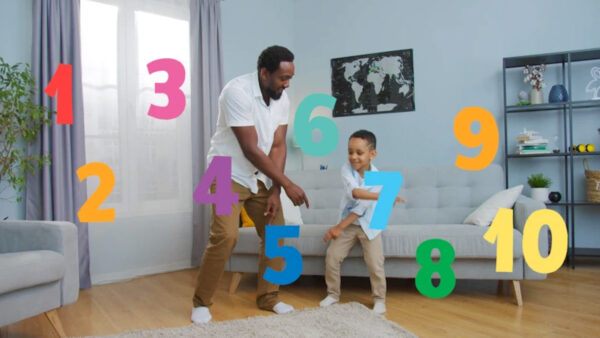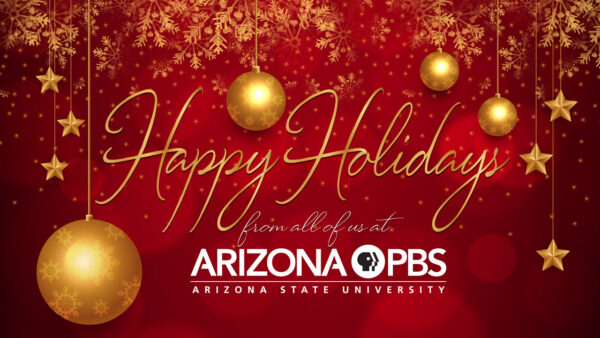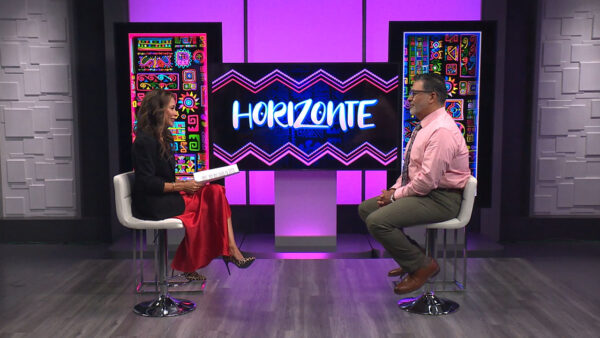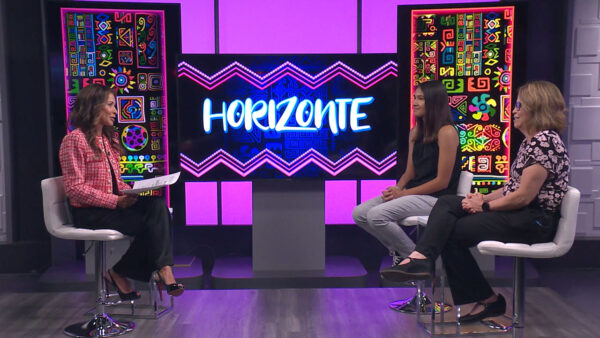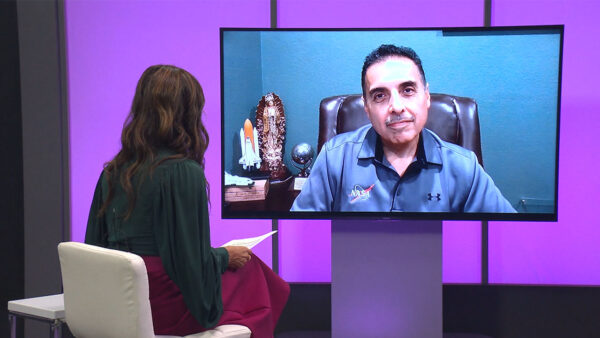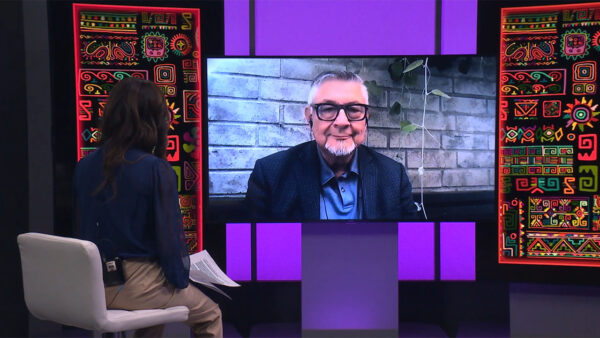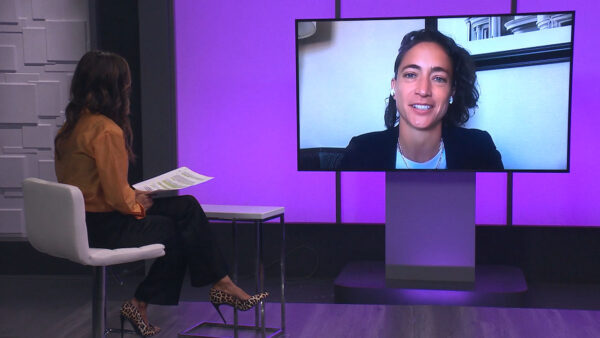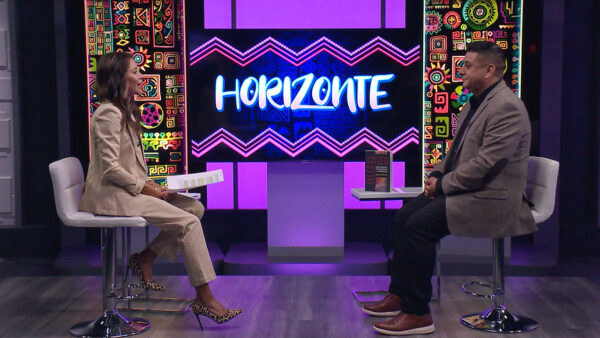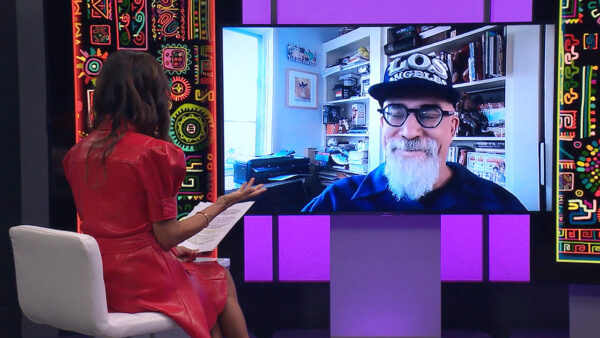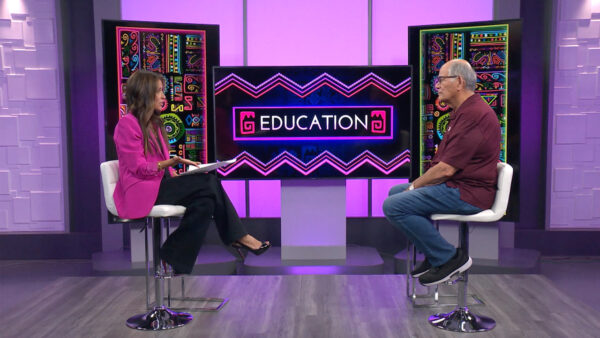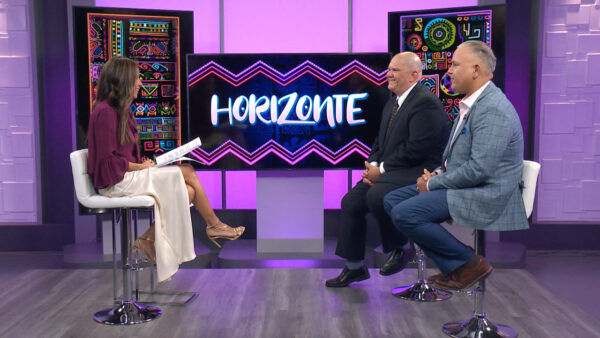The Home Affordable Refinance Program (HARP) is a federal program of the United States government set up by the Federal Housing Finance Agency (FHFA) to help underwater and near-underwater homeowners refinance their mortgages. FHFA has extended HARP through December 2016. Reginald Givens, foreclosure assistance administrator for the Arizona Department of Housing talks about the program.
JOSE CARDENAS: The home affordable refinance program known as HARP is a federal program set up by the federal housing finance agency to help homeowners refinance their mortgages. The HARP program has been extended through December 2016. Here now to talk about the program is Reginald Givens, foreclosure assistance administrator for the Arizona Department of Housing. and Mr. Givens, thank you for joining us on "Horizonte." Your program works both independently and hand in hand with HARP and other federal programs. Tell us a little bit about what you do and about your state program that you're employed with.
REGINALD GIVENS: And again thank you for having me here. I work at the Arizona department of housing and I administer the save our home A.Z. program, and it's a mortgage assistance program, federally funded by the U.S. department of treasury, that was designed, developed, implemented and overseen by the Arizona department of housing here locally and retention, transition, things that occurred as a result of the housing crisis.
JOSE CARDENAS: And in particular with respect to HARP, which is a program by which people can refinance their homes, how does your program interact with them?
REGINALD GIVENS: HARP, H-A-R-P, stands for home affordable refinance program. It enables consumers who owe more on their homes than it's worth to be able to refinance at market rates. And so that in and of itself can reduce the interest rate, extending the term of the mortgage. With the save our home A.Z. program, we provide principal reduction assistance. So if a consumer owes $250,000 on a home that's worth $200,000, they can receive $50,000 of principal reduction assistance. That reduction in the principal further enhances the reduction in the payment and therefore, they could see a reduction in their payment without necessarily extending their term or they could extend their term but either way it allows them to further accelerate the reduction of their principal return into a position of equity far sooner than they would otherwise.
JOSE CARDENAS: If somebody qualifies for HARP and they meet the further criterion that the value of the home is worth less than the mortgage on it, is there anything else they need to do to qualify for your program?
REGINALD GIVENS: There are and they pretty much go hand in hand. There's five core elements to qualify for the assistance under the save our home A.Z. program, has to be an Arizona property, has to be a primary residence, we don't assist with investment properties, their income has to be within 150% of the area median income, which is very liberal and allows many consumers to qualify and they have to owe more on the house than it's worth and then just lastly, they couldn't have excessively borrowed money against the property. We use a 150% equity stripping rule. If you bought it for $200,000, you can't owe more than three.
JOSE CARDENAS: If they've gone out and the reason for the high debt is personal credit lines, they probably wouldn't qualify?
REGINALD GIVENS: Possibly, but again 150%. So somebody who purchased for 200 could owe as much as three, $100,000 of additional debt that you could have added to the home and still qualify for the assistance.
JOSE CARDENAS: How successful has the HARP program been? You here criticisms that not much impact has been made by a lot of the initiatives from the federal government. What about HARP?
REGINALD GIVENS: I think in and of itself, HARP has been successful in providing meaningful assistance to houses, when you add to it the benefit of save our home A.Z., the assistance, the benefit becomes exponential. In fact, some consumers who come with us for program assistance, we make them aware of the benefits of HARP, if you will, who may not qualify for HARP can still qualify for principal production assistance under our program as well as the monthly mortgage assistance. So there's various components, if you will, that enables them over time to position themselves for the highest and best possible outcome.
JOSE CARDENAS: How many Arizona families have benefited from your programs?
REGINALD GIVENS: We've assisted nearly 4,000 Arizona household programs to date. We assist approximately 1,000 households monthly with monthly mortgage assistance. Those are households who have yet to return a self-sufficiency so they need their payment subsidized until we can achieve an affordable modification or they can increase their household earnings so they can adequately sustain the mortgage on their own.
JOSE CARDENAS: As we noted, HARP was scheduled to sunset at the end of this year. It's going to go on for another year. Our program will continue for the same period of time?
REGINALD GIVENS: Yes, in fact, our program goes through 2017. We have a year beyond HARP. We're hoping to make the most of this extension of the HARP, if you will, because the refinance is nice but some consumers as I mentioned previously who aren't able to qualify for refinance can get what they call a recash or reamortization of their loan so we can pay down that principal, and then recalculate their payment on the remaining term with the remaining rate, they still see a significant reduction of income, which is how we're able to graduate them to self-sufficiency.
JOSE CARDENAS: So other ways to benefit.
REGINALD GIVENS: Yes.
JOSE CARDENAS: Thank you so much for joining us on "Horizonte" to talk about them.
REGINALD GIVENS: Thank you for having me.
JOSE CARDENAS: And that's our show for tonight. From all of us here at "Horizonte" and Arizona PBS, thank you for watching. I'm Jose Cardenas. Have a good evening.
VIDEO: Funding for "Horizonte" is made possible by contributions by the Friends of Eight, members of your Arizona PBS station.
Reginald Givens: foreclosure assistance administrator for the Arizona Department of Housing
